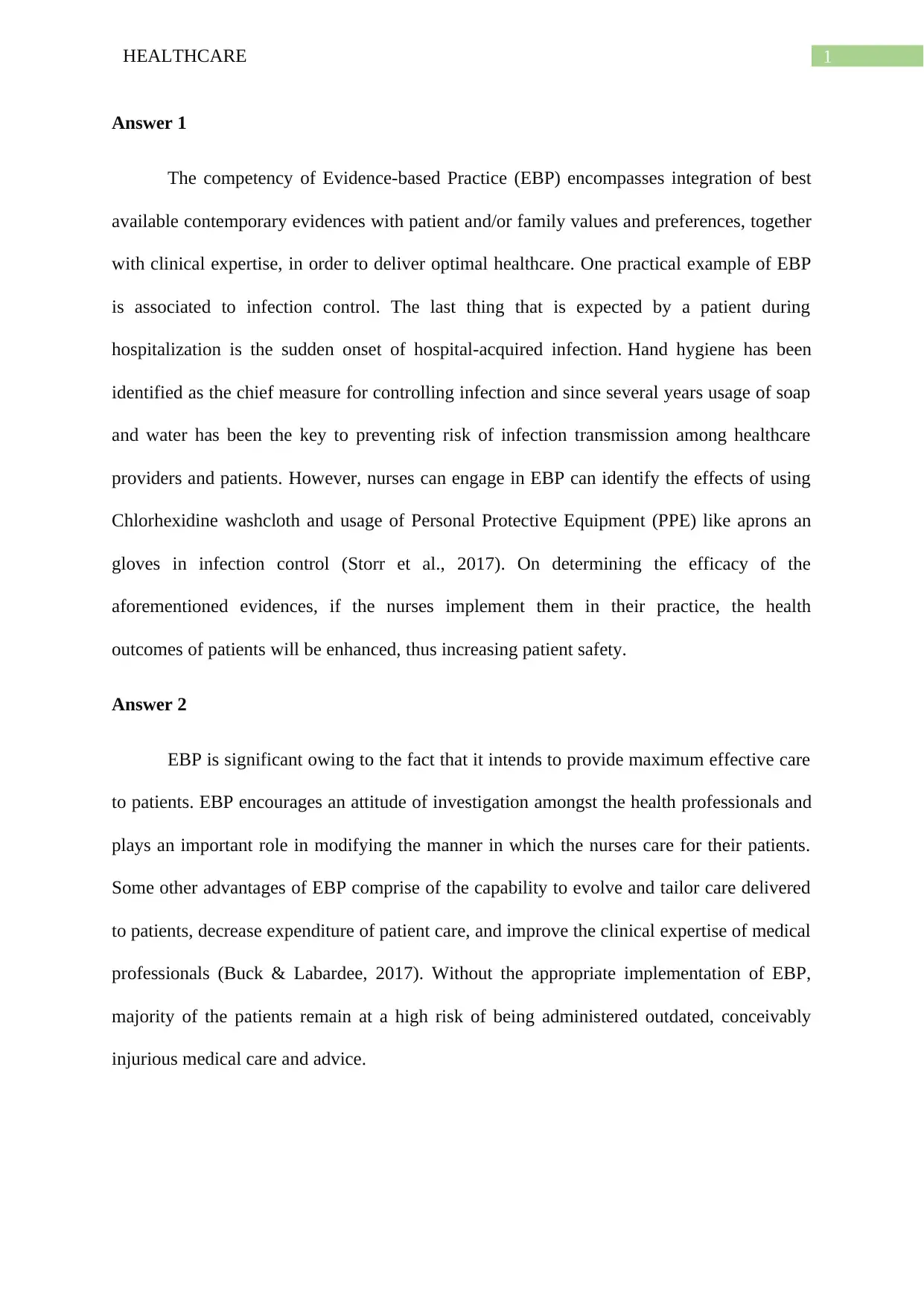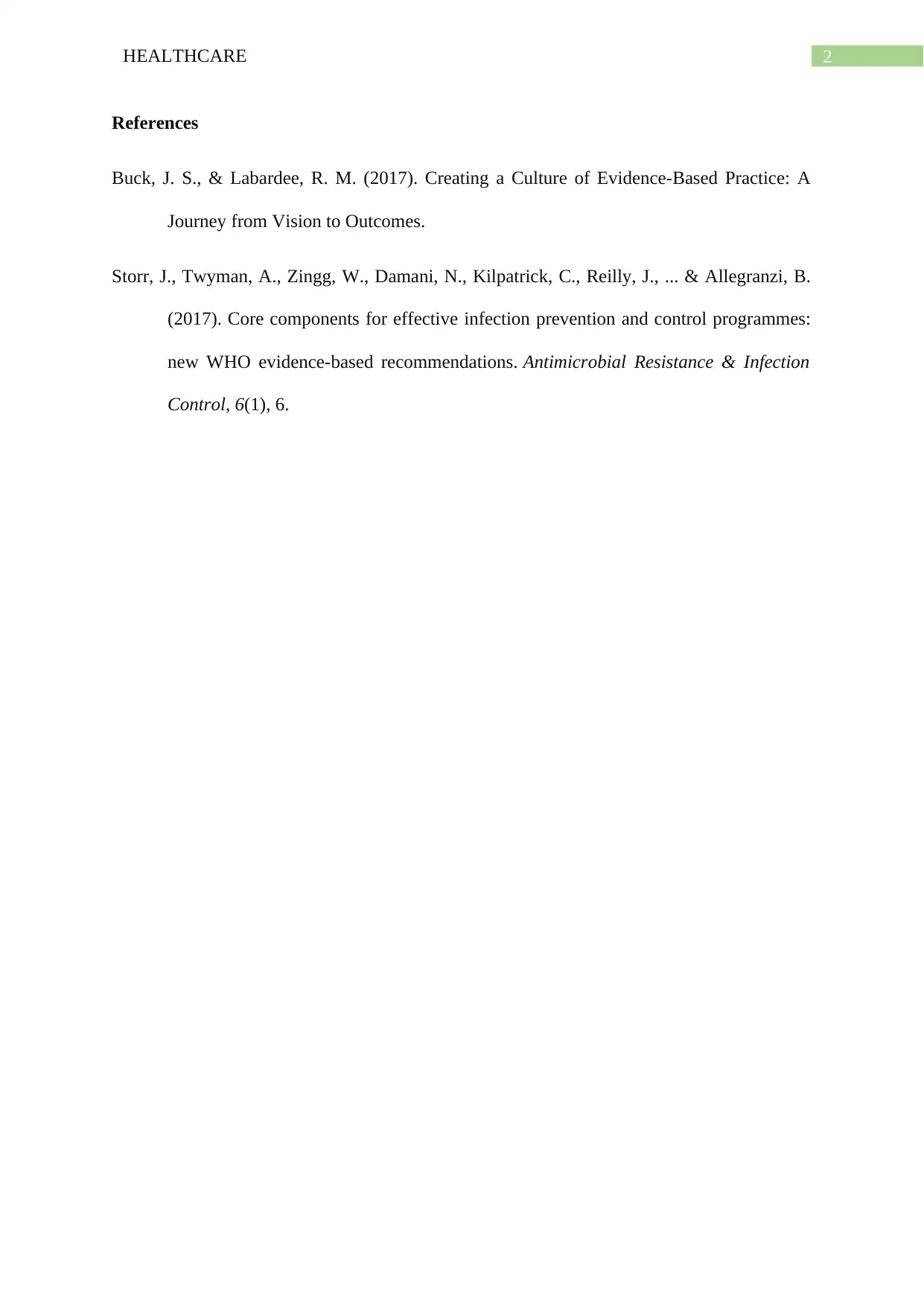Healthcare EBP and Infection Control: A Nursing Perspective
VerifiedAdded on 2022/08/13
|3
|404
|17
Report
AI Summary
This report delves into the significance of Evidence-Based Practice (EBP) in healthcare, specifically focusing on infection control within nursing practices. It highlights the importance of EBP in delivering optimal patient care and improving patient outcomes. The report discusses practical applications of EBP, such as the use of Chlorhexidine washcloths and Personal Protective Equipment (PPE) in controlling infections. It emphasizes how implementing EBP can enhance patient safety and reduce the risk of hospital-acquired infections. Furthermore, the report underscores the benefits of EBP, including its ability to tailor care, reduce healthcare costs, and improve the expertise of medical professionals. The report also references key studies and research to support its claims, providing a comprehensive overview of EBP and its impact on healthcare practices.
1 out of 3










![[object Object]](/_next/static/media/star-bottom.7253800d.svg)